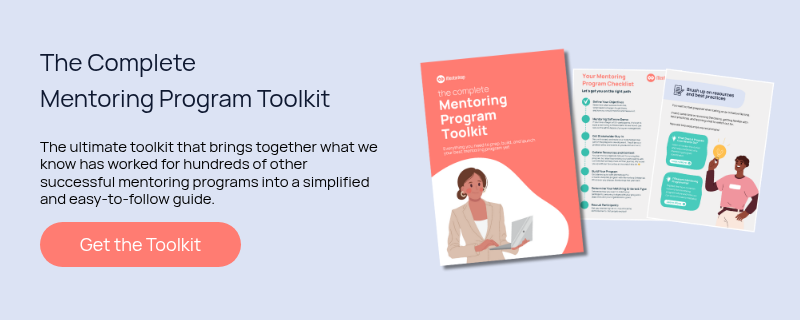What Is A Career Break?
A career break is a deliberate hiatus from one’s professional responsibilities, often taken for personal or family reasons. Whether you find yourself stepping away for childcare, education, health issues, or simply needing a mental health break, these pauses can provide individuals the space to reflect and recharge. However, the implications of taking a break can vary; what may seem like a refreshing break to some could be perceived as a setback by others.
As the world becomes increasingly fast-paced, the importance of recognizing and understanding career breaks cannot be overstated. They present opportunities for personal growth, skill improvement, or even a complete career pivot. This begs the question, how can we transform a career break into a launching pad for future success?
Why People Take A Career Break
Numerous reasons can drive someone to take a career break. Some may choose to pursue further education, while others might need to care for aging parents or young children. Life transitions, such as moving to a new city or recovering from an illness, also prompt individuals to reassess their career paths.
In a world that often glorifies constant work and hustle, taking a break might feel daunting. Yet, it’s crucial to remember that everyone’s journey is unique; stepping away from work can be a bold move towards self-discovery.
The Challenges of Taking A Career Break
While a career break can be liberating, it does come with its own set of challenges. Fear of being judged or overtaken by peers upon return can loom large. You might question your professional identity, wondering if you will be able to catch up with an ever-evolving job market. These thoughts can be overwhelming, making the transition from time off to back in the game quite bumpy.
It’s essential to recognize these challenges upfront. Knowing that you’re not alone in these feelings can lighten the burden. Open discussions about career breaks can encourage more understanding in professional circles, but how can we foster these conversations?
The Challenges of Reentry Into The Workforce After A Career Break
Reentering the workforce can often feel like trying to learn a new language—you may have once been fluent, but now, it seems foreign. The skills you once utilized might feel rusty, and the landscape of your industry may have shifted in unexpected ways.
Here are some common obstacles faced by career returners:
1. Skill Gaps and Technological Advancements
- Outdated Knowledge: Industries evolve rapidly, leaving returners feeling out of touch with the latest trends and practices.
- New Tools and Technologies: Learning new software, platforms, or methodologies can be overwhelming.
2. Confidence and Self-Doubt
- Impostor Syndrome: Returners often feel unsure about their abilities, even if they have valuable skills and experience.
- Fear of Judgment: Worries about how employers or colleagues might perceive the gap in their resumes.
3. Rebuilding Professional Networks
- Disconnected Networks: Time away may have weakened professional relationships.
- Lack of Current Contacts: Limited access to industry peers or mentors who can provide guidance and job opportunities.
4. Adjusting to New Work Environments
- Cultural Shifts: Workplace norms, diversity efforts, or communication styles may have changed during the career break.
- Work-Life Balance: Managing personal responsibilities, especially if the career break was for caregiving, can add stress.
5. Resume and Interview Challenges
- Explaining the Gap: Struggling to frame the career break as a period of growth or skill development.
- Competitive Job Market: Competing against candidates with uninterrupted career trajectories.
6. Limited Employer Support
- Bias Against Career Breaks: Some hiring managers may undervalue candidates with gaps in their work history.
- Lack of Returnship Programs: Few organizations offer structured programs to support career returners.
7. Financial Pressure and Urgency
- Immediate Needs: Many returners feel pressured to secure a job quickly, which may limit their ability to find roles aligned with their goals.
- Salary Negotiations: Difficulty in negotiating competitive compensation after a hiatus.
8. Mental and Emotional Strain
- Stress and Anxiety: Balancing the job search with personal commitments or uncertainties about returning.
- Isolation: Feeling disconnected from peers who may have advanced in their careers.
But fret not! This transition isn’t impossible. Many who’ve returned from breaks have succeeded through resilience and adaptability. Engaging with mentors can significantly ease this transition, as they not only provide guidance but also offer valuable insights into navigating a changed professional environment.
Managing Career Reentry After A Break
Managing your reentry after a career break demands both strategy and a sprinkle of courage. With the right strategies, it’s possible to reenter with confidence and purpose. Here’s how to effectively manage a career reentry:
Reframe Your Career Break as a Strength
Rather than viewing your time away as a setback, position it as a period of growth. Highlight any transferable skills or experiences you gained, such as:
- Problem-solving from managing personal projects or caregiving.
- New skills acquired through volunteer work, freelancing, or continuing education.
- Resilience and adaptability developed during the break.
Craft a compelling narrative that explains your career break in a positive light during interviews or on your resume.
Refresh Your Skills and Knowledge
Industries evolve quickly, so investing in skill development is essential:
- Take Online Courses: Platforms like Coursera, LinkedIn Learning, or Udemy offer affordable options to stay current.
- Attend Workshops or Seminars: These can help you build both knowledge and professional connections.
- Learn New Technologies: Familiarize yourself with industry-standard tools and software.
By showcasing your commitment to staying relevant, you’ll make a strong impression on potential employers.
Rebuild Your Professional Network
Reconnecting with former colleagues and expanding your professional circle can open doors:
- Attend Networking Events: Join industry meetups, alumni groups, or professional associations.
- Leverage Social Media: Use LinkedIn to reconnect with old contacts and engage with industry discussions.
- Find a Mentor: A mentor can provide guidance, support, and introductions to opportunities.
Networking helps you stay informed about job openings and gain valuable advice for reentry.
Prepare a Job Search Strategy
Approaching your job search with a clear plan can increase your chances of success:
- Tailor Your Resume: Focus on skills and accomplishments that align with the roles you’re targeting.
- Practice Interviewing: Be ready to address your career break confidently, focusing on what you bring to the table.
- Set Realistic Goals: Start with roles that match your current skills, and gradually work toward your long-term aspirations.
Being proactive and organized in your job search ensures you stay focused and motivated.
Seek Support and Guidance
You don’t have to navigate reentry alone. Consider these resources:
- Mentoring Programs: Joining a mentoring initiative can provide personalized advice and encouragement.
- Returnship Opportunities: These structured programs are designed specifically for professionals returning to work.
- Professional Coaches: Career coaches can help you refine your goals and boost your confidence.
Support systems make the transition smoother and less overwhelming.
Embrace Flexibility and Be Patient
Adjusting to a new work environment takes time. Be open to flexible arrangements like part-time roles or freelancing to ease the transition. Remember, reentry is a journey, not a race. Celebrate small victories and trust that consistent effort will lead to long-term success.
By taking these steps, you can transform your career break into an opportunity for growth, reentering the workforce with renewed confidence and direction.
The Role of Mentoring In Career Reentry
Mentoring plays a pivotal role in easing the transition into the workforce after a break. A mentor can be a source of knowledge, reassurance, and even motivation as you navigate the road ahead. They can provide insights into trends, expectations, and strategies for success, which can be invaluable.
Moreover, having someone who believes in you during this stage can help mitigate feelings of self-doubt. Remember, it takes a village to weather a storm, and mentors can become an essential part of your support system.
Building Confidence Through Supportive Mentoring Relationships
Building confidence is a gradual process, and a strong mentoring relationship can be a catalyst in this journey. Mentors often act as sounding boards, allowing you to voice your fears and aspirations openly. Their perspectives can shed light on where your strengths lie and highlight areas for growth. Trust in this relationship, and let it help you harness your potential!
Rebuilding Networks and Staying Current
As you step back into the workforce, staying updated with industry trends is crucial. Join professional groups, attend industry conferences, and participate in online forums. A mentor can introduce you to networks that may have been previously inaccessible, expanding your opportunities for professional growth.
Why not leverage social media, too? Platforms like LinkedIn can be instrumental in connecting with industry professionals and sharing your thoughts on relevant topics. The more you engage, the more visibility you gain.
Creating a Clear Path Forward
To make the most of your return, it’s essential to create a clear path forward. With your mentor’s guidance, set realistic goals that align with both your strengths and aspirations. Mapping out the steps you need to take—be it developing new skills or expanding your network—can provide a sense of direction that’s invaluable.
Remember, every journey begins with a single step. So, what are you waiting for?
Mentoring After Returning From A Career Break
Once you’re back in the workforce, the journey of mentorship should continue. Look for opportunities where you can also become a mentor. Sharing your story can inspire others who may feel apprehensive about taking a break.
Being a mentor allows you to give back while also reinforcing your own knowledge and skills. This cyclical act of giving and receiving not only strengthens your network but enhances your own development. Isn’t it a beautiful way to create a full circle?
How to Find the Right Mentor
The quest for a mentor can often feel daunting, but remember: it’s about quality over quantity. Look for someone whose career path resonates with you, and who shares your values. The best mentors are those who inspire you, challenge you, and are genuinely interested in your growth.
Don’t hesitate to reach out; often, people are flattered when asked to mentor. Engage in conversations, attend networking events, and when you find someone who could be a good fit, be bold and express your desire for their guidance!
From Break to Peak: Why Mentoring Matters for Everyone
In wrapping up, the journey from a career break to a career peak is not merely about reentering the workforce—it’s about evolving as an individual. Mentoring plays a transformative role in this evolution for all parties involved. It’s not just beneficial for those returning to work; it fosters a culture of support within organizations.
Why Organizations Should Invest in Mentoring Programs for Career Returners
Supporting employees returning from a career break isn’t just about filling positions; it’s about nurturing a thriving workforce. Here’s why mentoring programs are a smart investment:
- Improved Retention Rates: Employees who feel supported during transitions are more likely to stay and grow within an organization.
- Enhanced Diversity and Inclusion: Career returners bring unique perspectives and experiences, enriching workplace culture. Mentoring ensures they can integrate seamlessly and contribute meaningfully.
- Building Leadership Pipelines: By mentoring returners, organizations cultivate future leaders who have a strong sense of loyalty and purpose.
- Reputation as an Employer of Choice: Offering mentoring programs signals that an organization values growth, support, and long-term employee success, making it attractive to top talent.
Embracing Mentoring as a Tool for Transformation
Mentoring is not just a one-time initiative; it’s a lifelong tool for growth and transformation. Here’s how individuals and organizations can embrace mentoring:
- For Individuals: Seek mentors who align with your career goals and values. Remember, mentorship is a two-way relationship where both parties learn and grow.
- For Organizations: Create formal mentoring programs that pair career returners with experienced professionals. Provide resources and training to ensure success.
- For Everyone: Advocate for mentoring in your professional circles, sharing your experiences and encouraging others to seek out mentors.
By investing in mentoring, individuals can rise from career breaks to new peaks, and organizations can foster a culture of continuous learning and empowerment. Together, we can build workplaces where everyone has the opportunity to thrive.
Ready to take your organization’s mentoring to new heights? With Mentorloop, you can build, launch, manage, and measure a successful mentoring program that aligns with your goals. Whether you’re leading HR and L&D initiatives, managing large teams, or fostering professional development, Mentorloop is here to support your journey.



![[Webinar Kit] Mentoring for the 6 Stages of the Employee Lifecycle Learn how to make mentoring a core part of the employee experience and why it pays off at every stage.](https://no-cache.hubspot.com/cta/default/4058869/interactive-189627182868.png)



